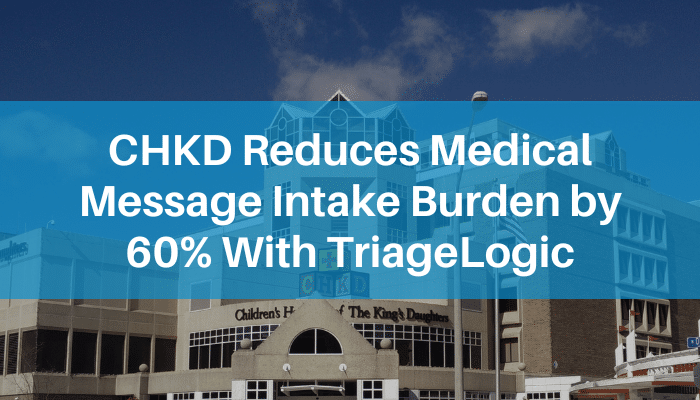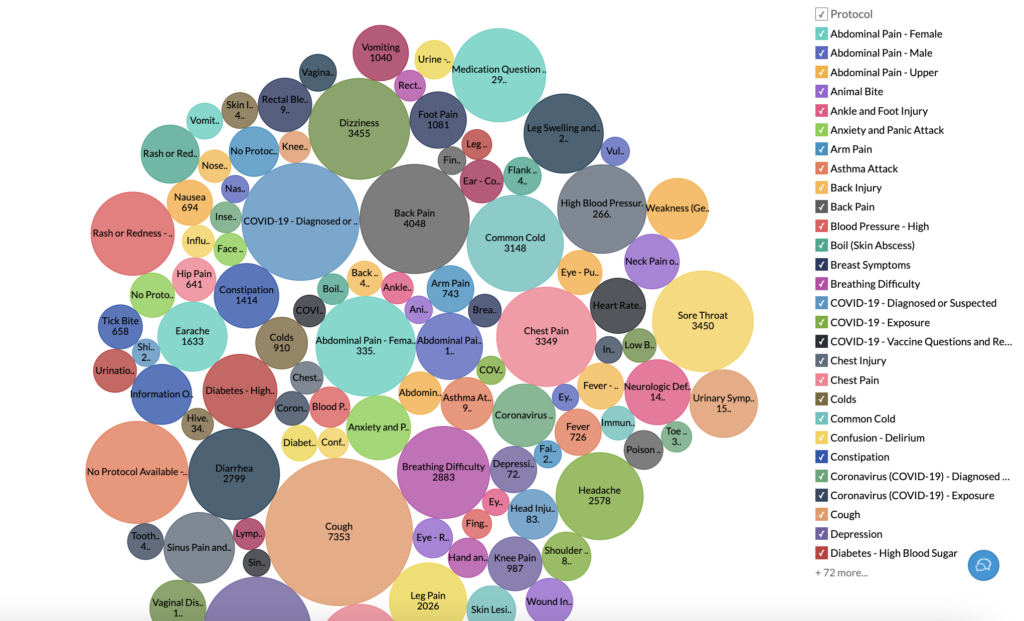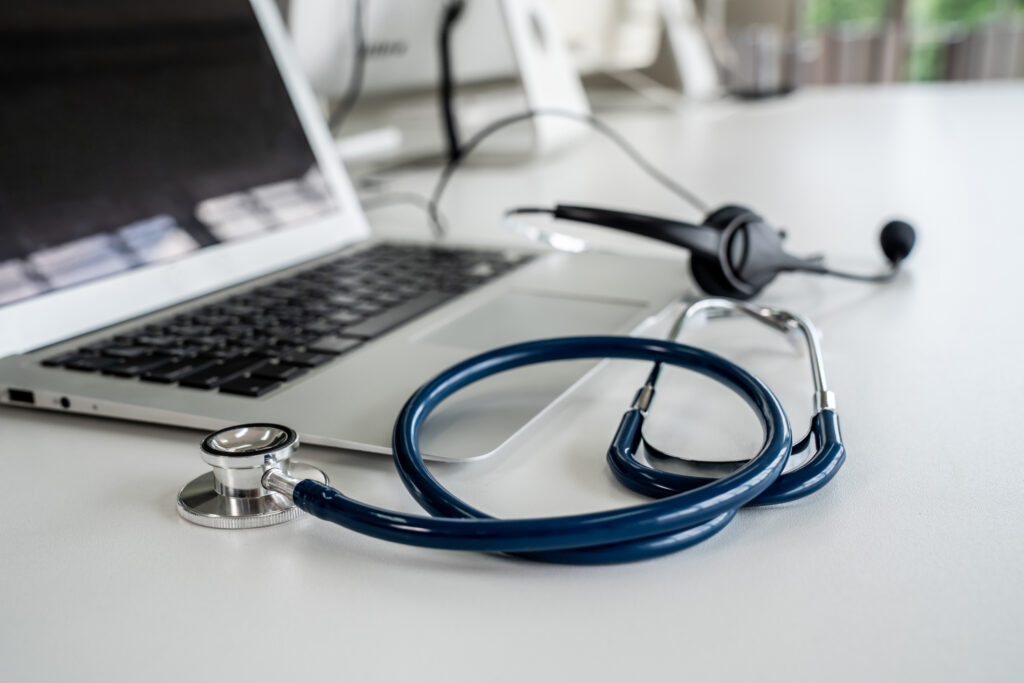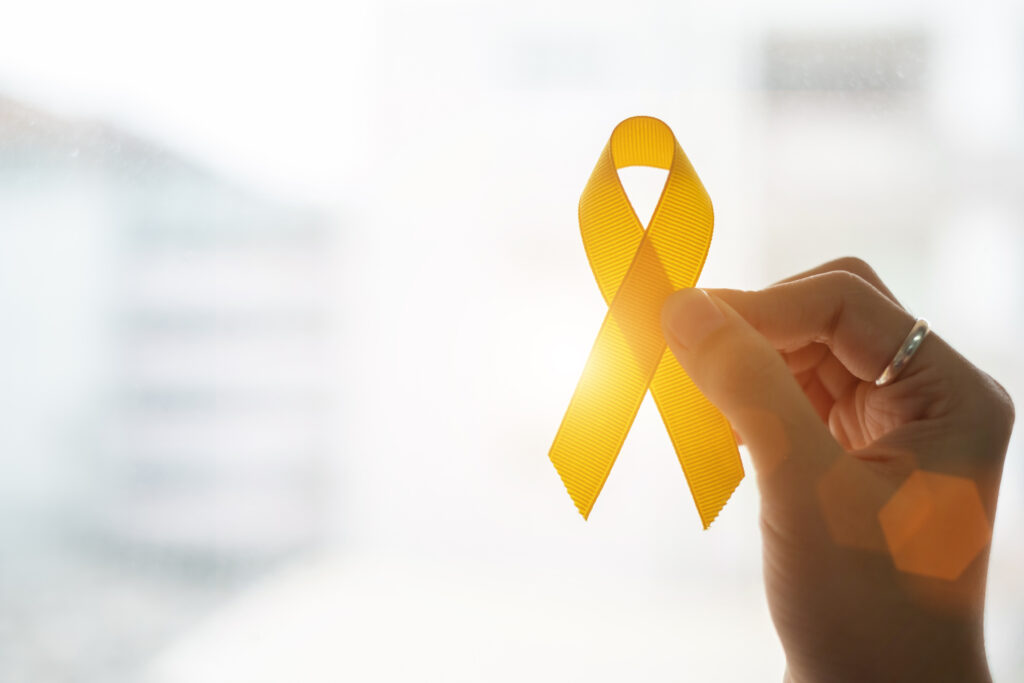
CHKD Reduces Medical Message Intake Burden by 60% With TriageLogic
In early 2025, a leading pediatric health system in Virginia took a bold step toward modernizing patient access — one that’s already reshaping their operations and improving satisfaction across the board. Hampton Roads Pediatrics, part of the Children’s Hospital of The King’s Daughters (CHKD) Medical Group, had been struggling with call volume and staffing limitations. Within weeks of implementing TriageLogic’s MedMessage Automate, over 60% of

Case Study: Improving Medical Message Intake With Augmented Intelligence for Your Operators
How accurate are the medical messages that your nonclinical operators send to your providers? According to Gilman and Bedigian, LLS, a law firm that specializes in medical malpractice, one of the biggest factors that leads to a lawsuit is when operators don’t send critical messages to doctors immediately. In fact, we have found that out of all emergency messages, about 30 percent do not accurately

Case Study: How a Hospital System Standardized Care With Nurse Triage Software
As a hospital network grows, it can be difficult to standardize health care. This is especially true when it comes to nurse triage, where patient callers are evaluated on their symptoms and instructed on the types of care they should seek, either from their PCP, the ER, or at home. Standardizing nurse triage doesn’t simply come down to assessing who’s answering your patient phone calls

Case Study: Health System Sees the Benefits of Nurse Triage On Call
As health systems grow, they may find it difficult to treat patient calls and requests equally across all providers in their network. This is where telephone nurse triage programs can be extremely beneficial, including the one we implemented for a large health system in the Midwest. Here’s why they chose our outsourced solution, Nurse Triage On Call. Our Health System Client Our client came to

Medical Answering Service Case Study: Improve Medical Messages with Artificial Intelligence
In the United States, about 100 million messages are relayed to doctors and nurses every month. About one in six calls have a symptom that needs to be evaluated urgently. However, those urgent symptoms aren’t always conveyed accurately to providers. This is because nonclinical operators usually take messages from patients and send them to doctors and nurses. Neither operators nor patients are trained medical professionals,

Case Study: How Do Triage Nurses Help Suicidal Patients?
Depression and suicide have been on the rise, up 33% from 1999 to 2017. One way to prevent suicide is by implementing a strong telephone nurse triage. We’ve seen firsthand how it can benefit patient callers considering self-harm by establishing a rapport and getting them timely medical assistance. We’ve even had instances where our own nurses have been thanked by suicide callers for being there

Case Study: How a Triage Nurse Uses Protocols for Tick Bites
As the weather heats up, daylight lasts longer, and people spend more time outdoors, tick bites become more common. Ticks are usually active during April to September, and the CDC notes that they often show up “in grassy, brushy, or wooded areas,” on animals, or even as close as your own backyard. In the event that one of your patients notices the tell-tale sign of

Case Study: Hospital System Partners with TriageLogic for Customized Triage Software and Call Center Support
Since the beginning of the pandemic and the push for social distancing, telehealth triage and outsourced nurse call centers have become invaluable components for evaluating callers’ symptoms and guiding them to the appropriate levels of care. It is important that your triage nurses have software with standardized, guided protocols to ensure patient safety and allow for continuity of care. Having software that can customize to

Nurse Triage Case Study: Giving Appropriate Callback Instructions
Any time that a triage nurse speaks to a patient caller about their symptoms, they need to include callback instructions. These are meant to guide the patient on what to do in case those symptoms worsen. It is imperative that the nurse provides enough information to the patient so that they can identify when that change has been significant enough to warrant a callback. Case
